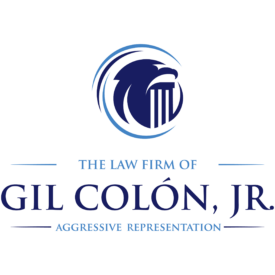When individuals face new criminal charges, their prior criminal history can have a profound impact on how their defense is approached. This article explores the ways in which past convictions and legal issues influence defense strategies in the context of new charges.
Understanding the Role of Prior Criminal History
When criminal defense attorneys strategize for clients facing new charges, one of the most critical factors they consider is the client’s prior criminal history. This history encompasses any previous convictions, arrests, or legal entanglements that could potentially influence the outcome of the current case. Understanding the role of prior criminal history is essential for crafting a defense that addresses both the current charges and the client’s legal background.
How Prior History is Presented in Court
In legal proceedings, a defendant’s prior criminal history can have significant implications and may be introduced as evidence against them. Prosecutors often use this information to establish a pattern of behavior or to argue for harsher penalties based on the defendant’s perceived propensity to commit offenses.
Defense attorneys must be adept at handling this presentation of prior history in court. Successfully navigating the presentation of prior criminal history requires a nuanced understanding of legal principles and effective advocacy skills. Defense attorneys play a crucial role in ensuring that their clients’ past experiences are presented in a fair and balanced manner, ultimately aiming to achieve the best possible outcome in light of the client’s legal background.
Defense attorneys typically respond to the introduction of prior criminal history by:
Providing Context
Attorneys aim to provide context surrounding the client’s prior criminal history. They may present mitigating circumstances that explain the circumstances of previous convictions or arrests. For example, they might highlight factors such as youthful indiscretion, addiction issues, or extenuating life circumstances that contributed to past legal problems.
Highlighting Rehabilitation Efforts
Another strategy is to emphasize the client’s efforts at rehabilitation and positive change since their prior legal issues. This can demonstrate to the court that the defendant has taken steps to address past behavior and is committed to leading a law-abiding life.
Challenging the Relevance of Prior History
Defense attorneys may challenge the relevance of certain aspects of the client’s prior criminal history to the current case. They may argue that certain convictions or arrests are not directly related to the charges at hand and should not be considered in determining guilt or sentencing.
Emphasizing Legal Precedents
Attorneys may cite legal precedents or statutes that restrict the admissibility of prior criminal history as evidence in certain circumstances. They may argue that the prejudicial effect of introducing prior history outweighs its probative value in the current case.
Strategies for Defending Clients with Prior Criminal History
Defense attorneys employ various strategies to defend clients with a history of prior offenses. These strategies aim to minimize the impact of past convictions on the current case and to secure the best possible outcome for the client.
Challenging the Legitimacy of Prior Convictions
One effective defense strategy involves challenging the legitimacy of prior convictions. Attorneys may argue for expungement or challenge the circumstances under which past convictions were obtained.
Emphasizing Rehabilitation and Change
Another approach is to emphasize the client’s efforts at rehabilitation and positive change since their previous legal troubles. This can humanize the defendant and demonstrate to the court that they are not defined solely by their past actions.
Seeking Alternative Sentencing
Defense attorneys may also advocate for alternative sentencing options, such as diversion programs or rehabilitation instead of incarceration. These approaches are particularly effective when clients have demonstrated a commitment to reform.
Impacts on Bail and Pretrial Release
A significant effect of prior criminal history is its influence on bail and pretrial release decisions. Courts may view individuals with a history of offenses as higher flight risks or potential threats to public safety, impacting their ability to secure bail or attain pretrial release.
The Role of Plea Bargaining
Plea bargaining is a common strategy in cases involving individuals with a prior criminal history. Defense attorneys may negotiate with prosecutors to secure reduced charges or lighter sentences in exchange for guilty pleas.
Using Prior History as Leverage
In some cases, defense attorneys can leverage a client’s prior criminal history during plea bargaining. By demonstrating a willingness to go to trial and potentially face harsher penalties, attorneys can negotiate for more favorable outcomes.
Being Transparent and Strategic
Throughout the legal process, transparency and strategic communication are essential when dealing with a prior criminal history. Defense attorneys must work closely with their clients to develop cohesive narratives that address past mistakes while focusing on present circumstances and future goals.
Seek Help from The Law Firm of Gil Colón, Jr
Those accused of a crime must keep in mind that prior criminal history significantly shapes defense strategies in cases involving new charges. Defense attorneys must navigate the complexities of presenting a client’s past while advocating for their rights and pursuing the best possible legal outcomes. By employing tailored strategies that address the unique circumstances of each case, attorneys can effectively advocate for their clients and mitigate the impact of prior history on the current legal proceedings.
Call The Law Firm of Gil Colón, Jr. today at 863-534-3777 to schedule a free consultation. We’ll review how the law applies to your prior criminal history and make a plan to fight for the best possible outcome for your case.






